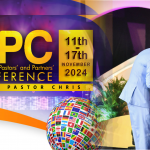
Welcome to another week of the Transformational Leadership Series (TLS). Last week we discussed the importance of values to sustainable transformation and development—using information from Max Weber’s Protestant Ethic and the Spirit of Capitalism (1905), David Aikman’s A Report on Christianity in China: A Conversation with David Aikman Speech at the Ethics and Public Policy Center in Washington, September 26, (2002) and Niall Campbell Ferguson’s Civilization: The West and the Rest (2011). Notice the cited works are from 1905 to 2011. The findings of 1905 still hold true in the 21st century.
Since we are discussing transformational leadership, let us consider the person credited with transforming China and opening it up to the world, Jiang Zemin. He worked with the then President of the World Bank Group Robert Strange McNamara to open up China to the world.
Jiang Zemin served as General Secretary of the Communist Party of China from 1989 to 2002, as Chairman of the Central Military Commission from 1989 to 2004, and as President of the People’s Republic of China from 1993 to 2003. Zemin has been described as the “core of the third generation” of Communist Party leaders since 1989. Why is he described as the core of Communist Party leaders? What accounted for his success? What is the basis of his leadership insight and drive? Some of the answers to the above may be deduced from this interview he gave.
When asked by the then Time Magazine Beijing Bureau Chief David Aikman, what he wished for in regard to China’s future, he replied: “I would like for my country to become a Christian nation”. When asked why, he explained how a panel of Chinese scholars had spent twenty years studying why China continually lagged behind the West in science, industry, and culture. After considering every possible explanation, they concluded that it was the religious heritage of the West that had allowed it to reach such heights. The statement of these Chinese scholars was as follows: “We were asked to look into what accounted for the … pre-eminence of the West all over the world … At first, we thought it was because you had more powerful guns than we had. Then we thought it was because you had the best political system. Next, we focused on your economic system. But in the past twenty years, we have realized that the heart of your culture is your religion: Christianity. That is why the West has been so powerful. The Christian moral foundation of social and cultural life was what made possible the emergence of capitalism and then the successful transition to democratic politics. We don’t have any doubt about this…” The forgoing is cited in:
- Ferguson, N. (2011). Civilization: The west and the rest. London: Allen Lane. p. 685-686
- Aikman, D. “A Report on Christianity in China: A Conversation with David Aikman.” Speech at the Ethics and Public Policy Center in Washington, September 26, 2002.)
TRANSFORMATIONAL LEADERSHIP
Values are timeless guiding principles that influence behaviour and do not change irrespective of whether circumstances are favourable or not. Many books and commentators have erroneously credited China’s rise to ‘everything’ except a Leadership indelibly impacted by Christian values and ethics. China’s leadership realised that it was not the West’s money, politics, weapons or intelligence that gave them an edge over the rest of the world but rather their Judaeo-Christian foundation and the value system it bequeaths.
Transformational leadership does not happen by accident. China realised that this type of leadership is intentionally cultivated using tools originating in Christianity or Judaeo-Christian worldview. One main example of tools is the values and ethics that Christianity espouses. Persons with these values end up dominating or exercising dominion and this ultimately affects the sustainable transformation of their homes, companies and nations positively.
An argument can then be made, that, according to the latest religiosity polls, the most religious countries in the world are Ghana and Nigeria and the least religious is China. Why then are African countries which are more religious not dominating the rest of the world with all their Christianity? The answer is simple. Religion and religiosity are not the same as intimacy with Christ which leads to the adoption of the values and character of Christ within and outside the church environment. For instance, in Ghana, Judges and law enforcement officers claim to be Christian and yet documentaries made by investigative journalist Anas Aremeyaw Anas has shown conclusively that these same persons exhibit the most un-Christlike values and ethics in the carriage of their duties to the state resulting in gross corruption. “Christian” judges, police and customs officers have been caught time and again on tape collecting bribes to pervert justice.
This is not what Jiang Zemin is referring to when he alludes to the importance of Christianity in prospering a nation. For him, Christianity means not only purporting to follow Christ but actually following the principles, values and character of Christ. Christianity should not just be in name but in action or else it does not lead to any transformation that is sustainable. As Max Weber proved, countries whose leadership practiced this, ended up prospering more than those who did not. For China to crossover to a capitalist system, it had to do so using Weber’s advice. As their own scientists noted, “The Christian moral foundation of social and cultural life was what made possible the emergence of capitalism and then the successful transition to democratic politics.”
Traditional universities will not teach the above but Christianity does truly hold the key to sustainable transformation.
Some decades ago, Uganda was on the brink of extinction because of the HIV/AIDS prevalence within that country. All the data, indicators and graphs did not look good. Consultants and Governments preached Comprehensive Sexual Education (CSE) as the key to reverse the trend. This includes the use of contraceptives and condoms. This was done but to no avail. What then reversed this pandemic? The simple answer as explained by Ugandan government officials in the Sentinel Group’s Transformations documentary series was ABSTINENCE—as espoused from a Judaeo-Christian perspective. This is what saved the day in Uganda.
In most places in our world today, CSE is preached more than abstinence and yet abstinence is the only thing that has a track record of reversing a pandemic of such magnitude and on this level. Thank God for the wife of the Ugandan President and some of the cabinet members who bought into the message of abstinence from a Judaeo-Christian perspective and promoted it—thus earning them a page or pages in Ugandan history as agents of transformation who saved the nation from a very probable AIDS pandemic of irreversible proportions.
China and Uganda are just a few examples of how adopting Christian values can make leaders succeed as agents of positive transformation. The role of values and ethics in building transformational leaders and in transforming societies cannot be overstated.







